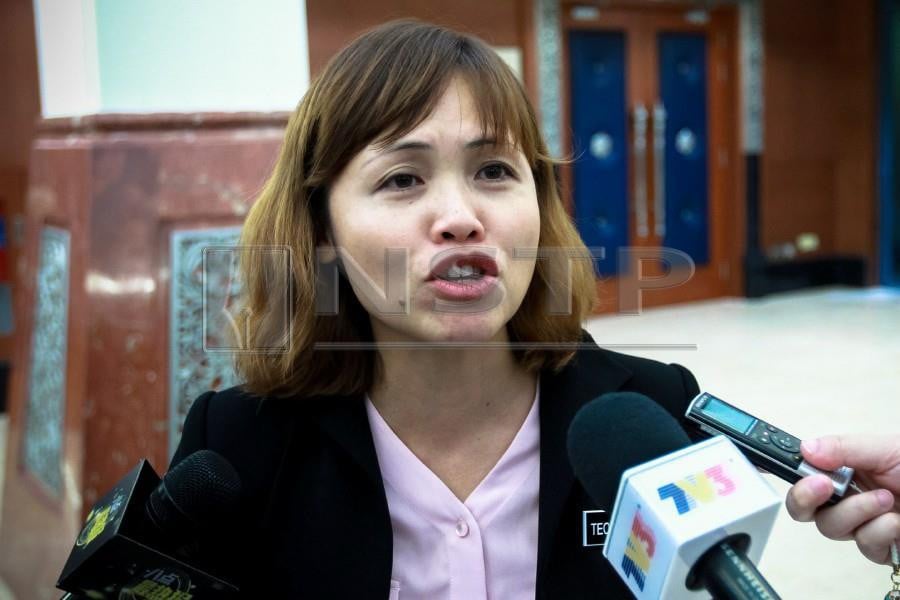For many students, tertiary education is the ticket to good jobs, opening up opportunities to be successful in life.
Parents, teachers and society in general have ingrained this in children from a young age.
To graduate with a degree, students spend years learning in class which may leave them little time for internships to gain experience at the workplace. But in today’s competitive job market, practical experience is the number one quality employers look for in hires.
Although tertiary education has always been the top choice for many students, technical and vocational education and training (Tvet) offers a compelling career path especially for Sijil Pelajaran Malaysia (SPM) school-leavers.
Tvet graduate Mohd Hazzerwan Mohd Hazzlee, co-founder and creative director of Wan & Mary, said a vocational college education has helped him to realise his dream. The collection consists of arts and cultural elements which mix high fashion with street fashion to meet current trends.
The Diploma in Fashion Design graduate from Kolej Kemahiran Tinggi Mara Rembau (KKTMR) said: “I rejected offers of different courses from top public and private universities because I wanted to pursue something that I love—fashion and art.”
Mohd Hazzerwan later pursued the Degree in Fashion design course at Heriot Watt university of Edinburgh, United Kingdom.
“At first I was a bit hesitant to apply for the fashion course at KKTMR as the institution was new then and was taking in its first batch of students. But I am glad I took a chance.
“I had the most amazing experience at KKTMR. until now, the lecturers have been supportive as it is not easy being in the fashion industry.”
Having recently won a prize of RM100,000 in Gen F (generasi Fesyen), a programme for budding fashion designers, Mohd Hazzerwan is collaborating with big names in fashion.
He is excited at his latest partnership with Fashion valet for its ready-to-wear collection.
He is also preparing to make his debut at International Fashion Week next year in either London, Paris or Milan.
There has been growing concern over the rate of employability among fresh graduates, be it from local or private institutions. Students today may aspire to professions which may not be relevant to the country’s needs.
This may be due to lack of exposure and knowledge on the economic outlook in the country. Nevertheless, students have to plan their careers carefully.
TVET programmes are often deemed inferior to courses offered by private and local universities. It is unfortunate that there seems to be a stigma attached to those who pursue TVET. The younger generation needs to realise the importance of TVET and regard it as a viable pathway.
Associate Professor Dr Mohamad Sattar Rasul from the Department of Learning and Teaching Innovation (Technical and Vocational Education/Engineering Education) at Universiti Kebangsaan Malaysia’s Faculty of Education said that this misconception of TVET is common among low academic achievers.
“We have heard success stories and achievements of TVET graduates who may earn more than degree holders,” he commented, adding that a teacher’s role is imperative to see TVET in a new light.
“It is essential to expose secondary school teachers to the TVET educational framework and career path. Teachers have to stop regarding TVET as the second or last option for SPM school-leavers.
“Our country’s TVET framework is unique where students have many course options. Those who do not do well academically have the chance to pursue higher education regardless of their SPM results.
“TVET in Malaysia must be revamped or remodelled after the German and Japanese curricula which are endorsed by the industry. Professional bodies in Malaysia need to step up and ensure the standard curriculum is in line with industry need. The curriculum here was developed by the board at an institution which sometimes does not cater to industry demand.”
The country needs a skilled workforce and innovators who possess a high creativity in utilising its resources for manufacturing and produce good services to compete globally.
“TVET is important is many ways especially in the economic and social context. The government has emphasised that TVET graduates are not job seekers but job creators. This will contribute to the country’s economic growth and the sustainability of our social context in handling future challenges.”
CAREER-READY
TVET offers a rich array of programmes in many fields including automotive, culinary arts, electronics, engineering, entrepreneurship and journalism. It involves learning in class and hands-on training, which provide knowledge and skills for employment.
TVET students are equipped with specific skills in a specific field. Early exposure to practical and on-the-job-training ready them for the workplace.
CKL Group of Companies, which is best known for its Lim Tayar car service centres, established School of Skills (SoS) to meet industrial need for local experts and skilled labour in the automotive industry. SoS aims to instil its students with real-world experience, ready for the workplace.
CKL Group of Companies, executive director Clement Lim said that SoS is important to produce skilled workers in the automotive sector.
“SoS acts as a self-mitigation tool for the company to alleviate dependency on foreign workers. We hope to nurture more talents and hone quality recruits for the industry.
“SoS offers programmes designed to give students the skills they need to become skilled and professional workers. The number of cars on the road is increasing, making the automotive field a big market. Hence, once students finish their studies at SoS, a job placement is guaranteed.”
SoS training department head Daneshwaran Krishnasamy said trained experts in all fields are in demand in the country.
“Our programmes boost skills and the workforce in the automotive field. By doing something practical and hands-on, we are able to draw out students’ interest easily. Many of our students, who did not perform well academically, are passionate when it comes to practical training.
“This industry is lacking in manpower. I used to work at BMW car services where the technicians were highly paid. Some were confident enough to leave and set up their own workshops for premium cars.
“The biggest advantage of SoS is its workshop where students spend most of their training hours. However, this school is not for Lim Tayar alone. After finishing their advanced diploma, students can apply for internships at any automotive workshops in the country,” he added.
SoS offers theoretical and practical training, and the work-integrated Train and Place programme, which involves four months of classroom-based learning followed by eight months of industry exposure.
UNIVERSITIES ARE NOT FOR EVERYONE
Generally, students go through 11 years of academic-based primary and secondary education.
Students who are not academically inclined can opt for vocational college as early as 16 years old upon completing Form Three.
Aiman Hakeem Aminuddin decided not to follow the mainstream path of applying to university despite scoring 8As in the SPM examination. The MRSM Tun Ghaffar student enrolled in the Diploma in Light Vehicle Maintenance course at SoS instead.
“I chose to pursue a TVET programme because I realised that picking up a skill benefits me in many ways, not only for future job prospects but also in my daily life.
“My family and I were going back to our hometown when the car tyre was punctured. Having learnt the skills in my diploma course, I was able to change the tyre without help,” he said.
“My parents convinced me to pursue a TVET programme. When the results for university applications were released, I did not even check mine as I was determined to study at a vocational college.
“Initially I had doubts after seeing my friends at university. Eventually, I don’t feel any different or left behind as knowledge can be obtained anywhere in any way possible.
“I am glad that I am pursuing my interest. Some students struggle to cope with their studies because they made the wrong choice.
“Some even fail.”
Source: https://www.nst.com.my



 Human Resources Minister M. Kulasegaran.
Human Resources Minister M. Kulasegaran.


